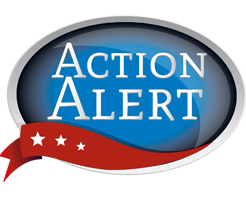 H.R.1332 - Thirty-Two Hour Workweek Act
H.R.1332 - Thirty-Two Hour Workweek Act

H.R.1332 - Thirty-Two Hour Workweek Act
Rep. Mark Takano (D-CA) has reintroduced the Thirty-Two Hour Workweek Act. This legislation would reduce the standard workweek from 40 hours to 32 hours by amending the Fair Labor Standards Act (FLSA) and lowering the maximum hours threshold for overtime compensation for non-exempt employees.
“Workers across the nation are collectively reimagining their relationship to labor – and our laws need to follow suit,” said Rep. Mark Takano. “We have before us the opportunity to make common sense changes to work standards passed down from a different era. The Thirty-Two Hour Workweek Act would improve the quality of life of workers, meeting the demand for a more truncated workweek that allows room to live, play, and enjoy life more fully outside of work.”
“For too long, our country has prioritized corporate profits over working people and Americans have been forced to work longer hours, sacrificing time with loved ones. While policies enacted by President Biden and Democrats have finally started to raise wages for workers across multiple industries, it’s vital that health, well-being, and basic human dignity are valued over employers’ bottom lines. Establishing a 32-hour work week would go a long way toward finally righting that balance,” said Rep. Pramila Jayapal (D-WA), Chair of the Congressional Progressive Caucus. “And as new data from a recent pilot program show, the 32-hour work week is not only good for workers—it’s good for companies too. I'm proud to join my Progressive Caucus colleagues in supporting Rep. Takano's bill and look forward to continuing the fight together to put power back into the hands of working people as we ensure every worker has good benefits, better conditions, and an equal voice on the job."
The Thirty-Two Hour Workweek Act does not make any changes or limit the number of hours that an employee may work in a standard workweek but amends the definition of the workweek in federal law. The majority of workers impacted would be non-exempt, hourly workers, but some salaried workers fall under the scope of the bill’s provisions. This legislation has the potential to increase wage-earning opportunities for a larger number of workers by limiting the number of hours required to reach the full-time threshold, as well as allow for better work-life balance and overall health outcomes.
Those against argue that reducing work days by one usually does not reduce the required productivity or hours required to work. Squeezing 40 hours into four days means a more intense schedule in addition to more disconnect. After three days off, it takes a bit to get back on the hamster wheel.
Do we simply require that children stay in school five days a week? How is that fair for teachers? Would this lead to animosity and collective bargaining for shorter work weeks? There are a lot of questions that communities will have to address if four-day workweeks become more ubiquitous.
Cutting back on the number of days/hours worked might require businesses to hire more labor or pay daily overtime rates, thus increasing costs. More staff putting in time during peak utility hours also risks higher utility bills. Going to a four-day workweek could require cutting back on profits, which amounts to sacrilege for many U.S. companies.
- Less pay (employers won’t want to or are unable to pay a 40-hour salary for only 32 hours worked)
- Reduced hours can increase pressure to meet deadlines which negatively impacts mental health and stress
- Burn out from working 10 hour days to get all work completed
- Reduced hours doesn’t necessarily mean a reduced workload
- Only realistic for flexible organizations
- Customer/client experience and level of satisfaction would be impacted
- Not every employee wants to work a 10-hour day or 4 days a week
Do you think Congress should pass H.R.1332, the Thirty-Two Hour Workweek Act?

